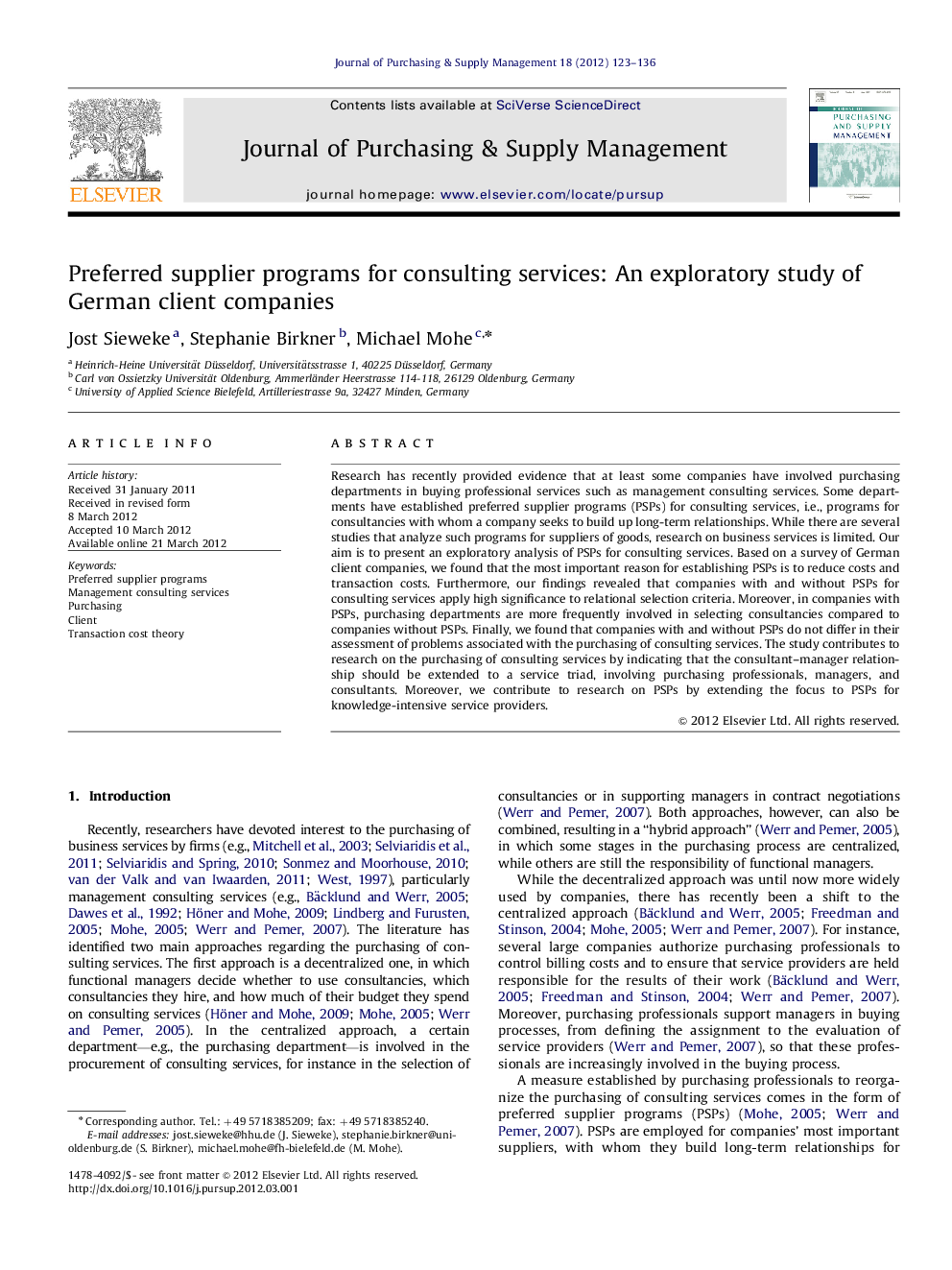| Article ID | Journal | Published Year | Pages | File Type |
|---|---|---|---|---|
| 1020889 | Journal of Purchasing and Supply Management | 2012 | 14 Pages |
Research has recently provided evidence that at least some companies have involved purchasing departments in buying professional services such as management consulting services. Some departments have established preferred supplier programs (PSPs) for consulting services, i.e., programs for consultancies with whom a company seeks to build up long-term relationships. While there are several studies that analyze such programs for suppliers of goods, research on business services is limited. Our aim is to present an exploratory analysis of PSPs for consulting services. Based on a survey of German client companies, we found that the most important reason for establishing PSPs is to reduce costs and transaction costs. Furthermore, our findings revealed that companies with and without PSPs for consulting services apply high significance to relational selection criteria. Moreover, in companies with PSPs, purchasing departments are more frequently involved in selecting consultancies compared to companies without PSPs. Finally, we found that companies with and without PSPs do not differ in their assessment of problems associated with the purchasing of consulting services. The study contributes to research on the purchasing of consulting services by indicating that the consultant–manager relationship should be extended to a service triad, involving purchasing professionals, managers, and consultants. Moreover, we contribute to research on PSPs by extending the focus to PSPs for knowledge-intensive service providers.
► We explore the use of preferred supplier programs (PSPs) for consulting services in Germany. ► We find that (transaction) cost considerations are the main drivers of the establishing of PSPs. ► Companies with and without PSPs attach similar significance to selection criteria. ► Purchasing departments are responsible for selecting consultancies in companies with PSPs.
